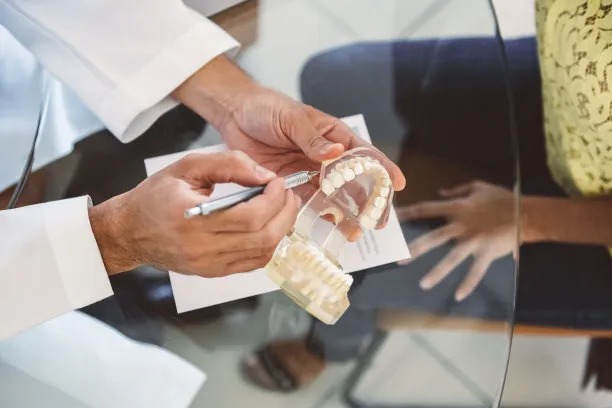Summary: Tooth extraction is often considered a last resort in dental care; however, it plays a pivotal role in maintaining oral health and ensuring the well-being of patients. This article explores four critical aspects of tooth extraction: its necessity in preventing dental disease, its impact on the overall health of individuals, the psychological implications of tooth loss, and the insights on recovery. Understanding these facets can help patients make informed decisions about their dental health and recognize the broader implications of extractions on their quality of life.
1. Necessity in Preventing Dental Disease

Tooth extraction serves as a fundamental preventive measure in dental health. When a tooth becomes severely decayed or infected, it can lead to further complications, not just for the affected tooth, but for adjoining teeth as well. Extractions prevent the spread of infection that can lead to conditions such as abscesses, which may require more invasive treatments if left unaddressed.
Moreover, wisdom teeth, commonly known as third molars, are often extracted to avert overcrowding and misalignment. These teeth can be prone to impaction, which creates a breeding ground for bacteria, leading to pain and infection. By proactively removing them, patients can avoid the long-term repercussions of dental crowding and associated complications.
Additionally, maintaining a healthy oral environment minimizes the risk of systemic infections. Poor oral health has been linked to various health issues, such as heart disease and diabetes. By choosing extraction when necessary, patients protect not just their oral health but their overall bodily health as well.
2. Impact on Overall Health of Individuals
The removal of problematic teeth can lead to significant improvements in an individual鈥檚 overall health. Chronic pain caused by dental issues can interfere with daily life, leading to reduced quality of sleep, difficulty in eating, and even a decline in mental health. Extraction alleviates this pain and allows individuals to regain their normal routines.
Furthermore, extracting teeth that are beyond repair can prevent complications that may arise from untreated infections, which can negatively impact systemic health. For instance, bacteria from an oral infection can enter the bloodstream, posing risks to vital organs. Therefore, timely extractions reduce the chance of serious health issues stemming from poor oral conditions.
A study indicates that individuals who prioritize dental extraction when needed are less likely to suffer from non-communicable diseases compared to those who neglect urgent dental issues. This correlation emphasizes the importance of dental extractions in promoting physical well-being and preventing broader health crises.
3. Psychological Implications of Tooth Loss
Tooth loss can lead to significant psychological challenges. Many patients experience feelings of embarrassment or self-consciousness after a tooth is extracted, which can affect their social interactions and self-esteem. Understanding and addressing these feelings are crucial for individuals undergoing extraction.
Moreover, the psychological burden of dental fear can exacerbate dental problems, creating a vicious cycle. Patients often avoid necessary dental visits due to anxiety, further complicating their oral health. By discussing extractions comprehensively with their dental specialists, individuals can dispel fears and better accept the benefits of such procedures.
Support systems, including family and counseling services, play a vital role in helping patients cope with the emotional ramifications of losing a tooth. Acknowledge these aspects can enhance the overall recovery process and reinforce positive self-images.
4. Insights on Recovery and Aftercare
Recovery after tooth extraction is just as important as the decision to undergo the procedure. Patients must be educated on proper aftercare to ensure swift healing and prevent complications such as dry socket or infections. Following a dentists guidelines on medication, rest, and dietary restrictions can expedite recovery and enhance oral health.
Maintaining follow-up appointments with dental professionals is crucial in monitoring the healing process. These visits allow practitioners to identify potential issues early and provide necessary interventions, further ensuring the patients health and well-being.
Lastly, understanding the role of oral hygiene post-extraction cannot be overstated. A consistent and thorough oral hygiene routine helps to protect the extraction site and supports the healing process. Education about maintaining oral hygiene is a vital part of the recovery phase.
Summary:
In conclusion, the importance of tooth extraction extends beyond simple dental health and touches upon various aspects of overall well-being. From preventing severe dental diseases to enhancing individual health and managing psychological implications, tooth extraction can significantly influence ones quality of life. Proper understanding and care during recovery play crucial roles in the positive outcomes following an extraction.
This article is compiled by Vickong Dental and the content is for reference only.
Vickong Dental
Vickong Dental is a large medical group established in Hong Kong in 2008 by professors from well-known medical universities in Guangdong and Hong Kong, as well as medical doctors from key national '985' universities (including Master's supervisors and senior professors). The chain of branches brings together expert dentists with PhDs and Master's degrees from Hong Kong and Mainland China, committed to providing high-quality dental treatment.
"Vickong Dental Practices the University Motto of 'Healing and Serving Society,' with a Stable Operation for Sixteen Years. It Has Been honored with Hong Kong Enterprise Leaders's Choice,' and is a Global Trusted Implant Center for the Nobel Implant System. Recommended by Hong Kong Metro Broadcast and Guangdong Television, it Serves Customers from Over Thirty Countries and Regions, Gaining the Trust and Favor of Citizens from the Guangdong-Hong Kong-Macau Greater Bay Area and Surrounding Cities.

Thousands of customers' unanimous praise
The most recognized and highly recommended dental service by customers in the Guangdong-Hong Kong-Macau Greater Bay Area
We Ensure You Receive Detailed Care and Attention Here
Hong Kong standards, Shenzhen prices, Your Trusted English-speaking dentists

Vickong Dental Medical-Grade Instrument Disinfection Process
Vickong Dental Medical-Grade Instrument Disinfection Process

Vickong Dental Chain: A Warm and Comfortable Environment for Treatment






Appointment Hours

Q&A
Why choose Vickong Dental?
Vickong Dental practices the university motto 「Medicine to Benefit Society」, with each branch bringing together highly qualified dentists with doctoral and master’s degrees from Hong Kong and the Mainland, and has maintained seventeen years of steady operation。Recipient of 「2024 Hong Kong Enterprise Leaders Brand」, 「2025 Hong Kong Enterprise Leaders Brand」, a Nobel Biocare Global Trusted Implant Center, and a brand recommended by Metro Radio Hong Kong and Guangdong TV。
To date, we have served customers from more than thirty countries and regions,earning exceptionally high word-of-mouth recognition and trusted recommendations from residents across the Guangdong-Hong Kong-Macao Greater Bay Area and surrounding cities
We have eight major branches in Zhuhai、Shenzhen,and a consultation and service assurance center in Hong Kong,so you can book a free consultation at any time for any questions,which is very reassuring.
If I do not accept the quotation after the CT scan, will I be charged??
No! As long as the actual treatment has not started, you will not be charged any fees.
Will there be any additional charges during the treatment process?
No, there won’t be any additional charges. Before treatment begins, we will clearly explain the treatment plan and its corresponding fees. Only after the patient agrees and signs the consent form will we proceed with the dental service.
Can I pay in Hong Kong dollars?
Yes. Vickong Dental accepts payment in Hong Kong dollars. The amount will be converted based on the exchange rate of the day, and the applicable rate will be clearly communicated to you in advance.
Can I reschedule my appointment at any time?
Yes. Please contact us via **WeChat** or **WhatsApp** as early as possible, providing your original appointment time and details, along with your preferred new date and time slot for rescheduling.













